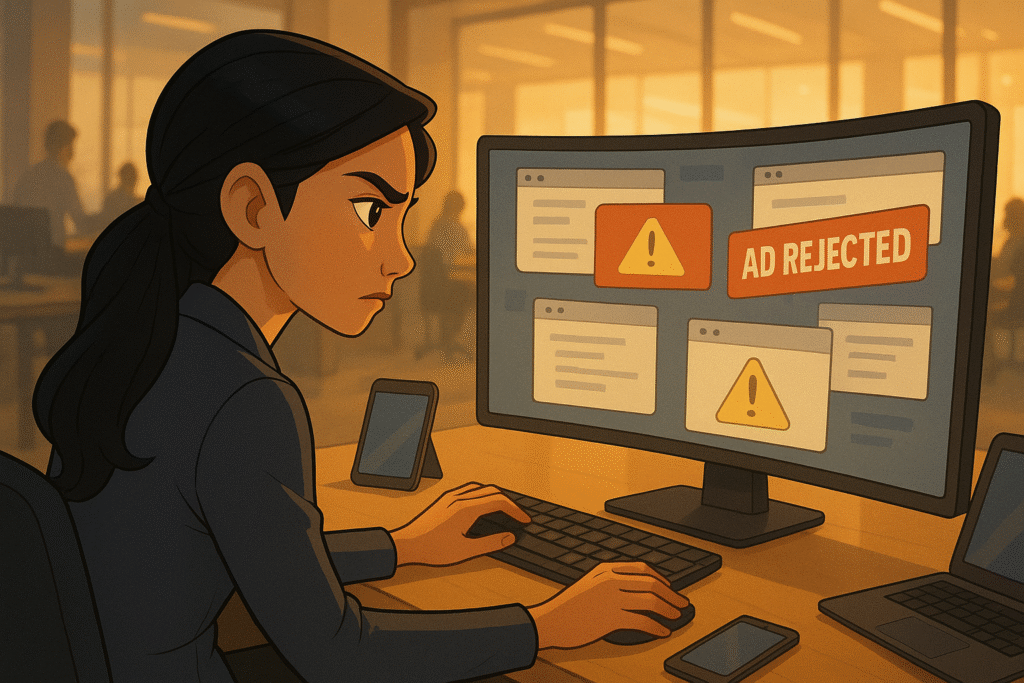
Why launching products feels like playing a rigged video game — and how to win anyway
Life isn’t fair.
But that’s nothing compared to launching a product in the digital age.
Not long ago, I watched Google decide NOT to index a perfectly optimized website despite following every SEO best practice better than the competition.
No explanation, no appeal process, just algorithmic indifference.
No visibility day after day, despite Google Search Console saying you’re in a “priority crawl queue” as billions of useless pages are being indexed virtually instantaneously.

Then, when it finally did crawl the site, it still didn’t show the website in search results for weeks. Even when you searched the brand name directly.
Imagine being in that founder’s boots. It’s infuriating, and you’re helpless.
I’ve seen Meta disapprove ENTIRE high-budget ad campaigns because its automated systems couldn’t understand why legitimate messaging WAS truly legit.
Products that help people solve real problems get flagged as “misleading” based on keywords taken out of context or approaches not recognized as viable solutions.
And I’ll never forget the time people on Reddit posted completely false information about how a client’s product performed, and it went to the top of search results faster than we could respond with facts.
Often when you do, your attempts to set the record straight are treated with less credibility than the fake news.
Welcome to product launches, where the rules change hourly and fairness is a luxury you can’t afford.
But here’s what I’ve learned after watching hundreds of products fight through these obstacles: business is exactly like a video game.
The platforms are the game engine. They set arbitrary rules, change them without warning, and punish players who don’t adapt quickly enough.
Competitors are other players trying to reach the same goal. Some play fair, others exploit glitches in the system.
Customers are NPCs (i.e. non-player characters) with unpredictable behavior patterns that you have to learn through trial and error.
And your job as a product maker is to crush every challenge and figure out how to move to the next level.
When Google refuses to index your site, you don’t give up — you find ten other ways to drive traffic. Direct outreach, partnerships, influencer collaborations, email marketing, content syndication. (And yeah, suck it up and pay into Google ads, despite knowing that’s exactly what those a**holes want.)
When Meta repeatedly rejects your ads, you pivot to platforms success hasn’t ruined yet. TikTok, YouTube, LinkedIn, podcast sponsorships, or good old-fashioned PR.
When viral misinformation spreads, you respond with overwhelming proof. Customer testimonials, video demonstrations, third-party validation, and transparent communication.
In I Need That, I discuss how successful products require persistence through systematic unfairness. The companies that win aren’t those with perfect launches — they’re the ones that adapt fastest when everything goes wrong.
Product Payoff: When Apple launched the original iPhone, Verizon (the largest U.S. carrier) refused to carry it, demanding control over the software and user experience. Instead of compromising its vision, Apple partnered with smaller AT&T and built its own retail strategy. They turned platform rejection into competitive advantage by creating direct customer relationships that competitors couldn’t replicate.
The “unfair” treatment forced Apple to build better systems for reaching customers.
Your resilience strategy: Before launching, assume at least three major platforms will reject, misunderstand, or penalize your product unfairly. Build multiple pathways to reach customers so no single platform controls your success.
The most successful product makers treat obstacles as game mechanics to master, never injustices to fret uselessly about.
What’s the most unfair platform rejection or viral misinformation you’ve had to overcome?
Slam that reply arrow and share your “video game boss battle” moments in product marketing.
Or reach out to my team of product marketing strategists at Graphos Product.
